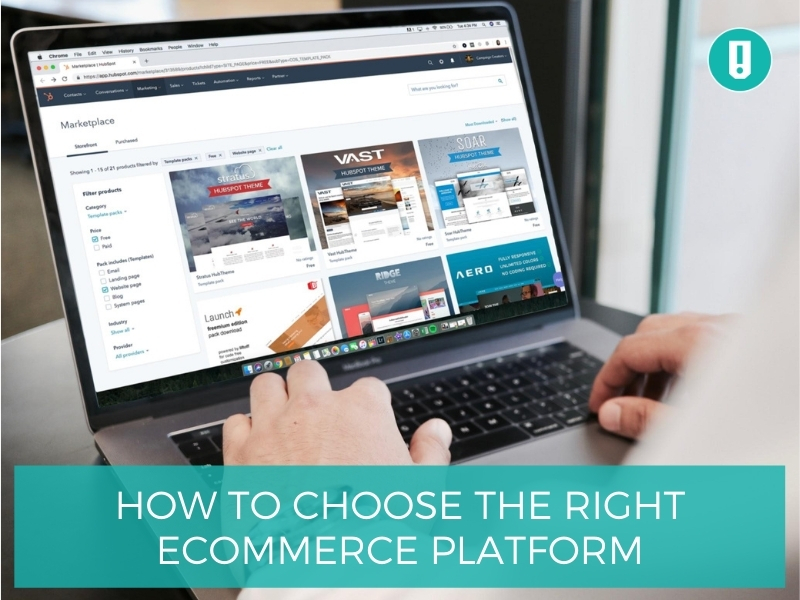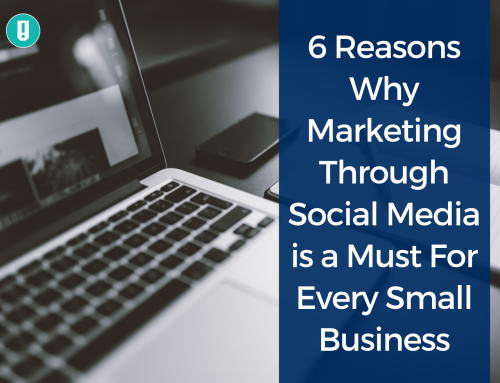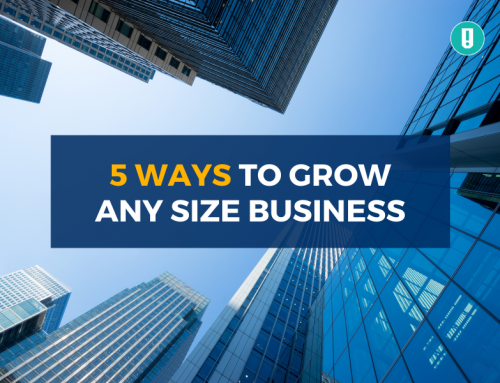When you hear others talking about e-commerce, you probably might think it is a fully-automated business model that does not suffer physical store problems. This, in fact, is quite true.
However, managing an e-commerce site can be just as challenging as other businesses, at times, even more than a traditional storefront. This is because e-commerce is very much relied only on a single third-party platform, nothing else! It means that if you want to build an e-commerce business, you will have to leverage a third-party eCommerce platform like Magento or Shopify. Of course, you can also choose to sell your products/services through your custom-built website independently; you will need to head towards such services at some point to scale your operations.
Similarly, you need to understand many factors on how eCommerce platforms earn money for your business.
How To Choose The Right Ecommerce Platform
Some things you need to consider when choosing an e-commerce platform for your business include:
1. Payment And Pricing
One of the first things you need to consider when looking for an eCommerce platform for small businesses is its price. Whether you are a start-up or an established physical store that wants to explore the realms of online shopping, you need to know exactly what you are paying for. Most e-commerce platforms have a monthly fee structure. Depending on the type of platform you choose (whether hosted or self-hosted), the cost may vary.
After this, there are also some other types of costs, like processing fees associated with the platform. It would help if you never neglected the things that you may need for a lower price. Always balance the pros and cons if you want to get the best out of your budget.
2. Integrations
The eCommerce platform for sale you choose needs to have plugins and integrations. Thankfully, most platforms are already fitted with tools that will help you run your business. The type of business you run will determine what plugins will work best for you. When you are looking through the platforms, you need to have a clear stand on what tools you need or use. Some popular types of plugins include:
- Apps for helping with the product shipment
- A platform to reward your audience for using your product/service
- Email marketing tools to keep in touch with your target audience
- Accounting plugins to help with profits, revenues, taxes, and sales
3. SEO-Friendliness
No matter how big your e-commerce business becomes, you will still need to work on SEO to stay ahead of the game. Also, it is quite advantageous if your brand name is ranked high in the search results. You want your customers to see your name in the search results when they are looking for that particular product/service.
You will know that an eCommerce platform builder is SEO-friendly when:
- Customers have the space to leave reviews.
- Your own domain name is used.
- Added blogs to the website.
4. Mobile App Friendliness
In a world where almost every person owns a cell phone, it should not be surprising that almost 60% of the searches on Google are done on these devices. In most cases, these searches lead to a purchase, which is also done on your mobile device. It means that the e-commerce platform should be easily accessible on mobile devices, whatever your niche may be – like commercial goods, gaming like Eye of Horus, or other types of software.
For instance, some of the best platforms for selling video games boast this point extraordinarily. Platforms such as Decluttr, Amazon, Swappa, and Game Stop are excellent locations to get started online in this direction. Each of them has different markets, so it all goes down to your needs.
5. Customer Service
One of the key aspects that contribute significantly to a business’s success is its customer care service. When it comes to physical stores, the people present there physically have more control over their business’s smooth running. However, e-commerce is a whole different deal altogether. Often, server downtimes and software outages are beyond human control. The server may also crash in the last possible minute, thereby affecting your brand image and your revenue.
In this case, proper customer support can prove to be a positive factor. When looking at the eCommerce platform comparison for customer service, you need to ask yourself several questions, like availability, modes of communication, levels of support, etc. It would help if you analyzed these questions critically before choosing the e-commerce platform.
6. Security
Of course, you would not want to enter your credit card details on a site that looks sketchy. Hence, security is one of the most important factors when looking for an eCommerce platform design. While most of these platforms have robust security, you should ensure certain things like SSL/HTTPS protection for a secure and safe payment method. Additionally, the platform you choose also should be PCI (Payment Card Industry) compliant.
7. Scalability
As a business owner, you would obviously want your business to grow in the future. However, it is impossible to know to what extent. Hence, you must look for an e-commerce platform that will be able to scale along with your business’s growth.
Of course, you would not want to pay for storage or features that you will not use when starting out. Additionally, you would also want to focus on keeping up with the demands when your business starts out. You need to pick an eCommerce platform for services that can scale your business’s size and not charge exorbitant fees for the same.
Final Thoughts
An e-commerce website is a powerful tool that can help you earn lots of money if you know how to use it right and choose the correct e-commerce platform for the job. Whatever eCommerce platform meaning you end up choosing should affect your business positively. It should also have a mark on your website’s SEO. Selecting the right e-commerce platform will depend on the type of business you run. However, the factors mentioned above are quite significant, and you should remember them. Drop your queries in the comment section below.
Alex Norwood is an experienced traveler and an online entrepreneur. He is very interested in technology and tries to implement it in his life. He runs a successful eCommerce business and is always on the lookout for new lucrative ways to make money online.







Leave A Comment